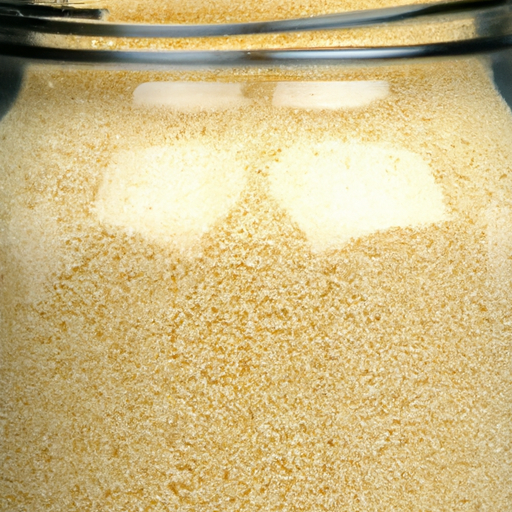Have you ever wondered how fermenting chicken feed can actually help in reducing costs? It might sound unusual, but the process of fermenting chicken feed can have significant benefits for poultry farmers. By fermenting the feed, the nutrients become more accessible to the chickens, promoting better digestion and absorption. This not only improves the overall health of the birds but also reduces the amount of feed needed, leading to cost savings. In addition, fermenting the feed can also prevent the growth of harmful bacteria, contributing to a healthier flock. So, let’s take a closer look at how this simple yet effective practice can make a big difference in cost reduction for poultry farmers.
Fermenting Chicken Feed: An Overview
What is fermenting chicken feed?
Fermenting chicken feed refers to the process of soaking and fermenting the chicken feed in water in order to enhance its nutritional value, improve digestion, and reduce feed consumption. This method involves allowing beneficial bacteria and yeast to break down the feed components, making it easier for chickens to digest and absorb the nutrients.
Why is fermenting chicken feed gaining popularity?
Fermenting chicken feed has been gaining popularity among poultry keepers for various reasons. Firstly, it has been found to reduce feed consumption, resulting in significant cost savings. Additionally, fermenting the feed promotes better gut health, improves nutrient absorption, preserves feed quality, and allows for on-farm production of feed. Furthermore, this practice reduces the environmental impact associated with conventional poultry feeding methods.
Benefits of fermenting chicken feed
Fermenting chicken feed offers several benefits that make it an attractive choice for poultry keepers. Let’s explore these benefits in more detail.
Reduced Feed Consumption
By fermenting chicken feed, you can significantly reduce the amount of feed that your chickens consume. The fermentation process increases the nutrient availability in the feed, allowing the chickens to obtain more nutrients from smaller portions. This results in lower feed costs and reduced overall consumption.
Increased nutrient availability
During fermentation, the beneficial bacteria and yeast present in the feed break down the complex nutrients into simpler forms, making them more easily digestible for the chickens. This improved nutrient availability ensures that chickens receive optimal nutrition from their feed, leading to healthier and more productive birds.
Enhanced palatability
Fermenting the feed enhances its palatability, making it more appealing to the chickens. The fermentation process produces lactic acid, which gives the feed a slightly tangy taste that can be enticing to the birds. With improved palatability, chickens are more likely to consume the entire feed portion, reducing waste.
Improved digestion
The fermentation process breaks down the cellulose and other complex carbohydrates present in the feed, making them easier for the chickens to digest. This leads to better nutrient absorption and utilization, resulting in improved overall digestion and gut health.
Reduced feed wastage
Chickens tend to be selective eaters, often picking and choosing certain feed components while leaving others uneaten. However, fermenting the feed helps minimize this selective eating behavior as the fermentation process improves palatability and nutrient availability. This leads to reduced feed wastage, preventing unnecessary costs.
Improved Gut Health
Fermenting chicken feed promotes better gut health in several ways, which has a positive impact on the overall well-being of the poultry flock.
Enhanced microflora
The fermentation process encourages the growth of beneficial bacteria in the chicken’s gut, creating a healthier gut microbiome. These beneficial bacteria help maintain a balanced digestive system and support the overall health of the birds.
Increased beneficial bacteria
Fermented feed contains a higher concentration of beneficial bacteria that assist in breaking down feed components and promoting digestion. These bacteria help to maintain a healthy gut environment, preventing the growth of harmful bacteria and reducing the risk of digestive issues.
Reduced pathogen growth
The fermentation process creates an environment in the chicken’s gut that is less favorable for the growth of pathogenic bacteria. This diminishes the risk of infections and diseases, contributing to the overall health and well-being of the poultry flock.
Stronger immune system
The improved gut health resulting from fermented feed translates into a stronger immune system for the chickens. When the gut is in a healthy state, it can better absorb and utilize the nutrients from the feed, providing the necessary resources for the immune system to function optimally and defend against diseases.
Enhanced Nutrient Absorption
Fermenting chicken feed enhances the absorption of nutrients, allowing the birds to effectively utilize the feed they consume.
Increased bioavailability of nutrients
The fermentation process breaks down the complex nutrients in the feed, making them more easily absorbed by the chicken’s digestive system. This increased bioavailability ensures that the birds can obtain more nutrients from their feed, leading to improved growth and productivity.
More efficient digestion
With improved nutrient absorption, the chicken’s digestive system can work more efficiently, extracting the maximum amount of nutrients from the fermented feed. This efficiency leads to better growth rates and healthier birds.
Reduced need for supplementation
Due to the increased nutrient availability and absorption, chickens fed fermented feed may require less additional supplementation. This can reduce the costs associated with purchasing and administering supplements, resulting in further cost savings.
Improved growth
The enhanced nutrient absorption resulting from fermented feed translates into better growth rates and weight gain for the poultry flock. Chickens fed fermented feed often exhibit improved muscle development and overall body condition, leading to a healthier and more productive flock.
Cost Savings on Feed
Fermenting chicken feed offers various cost-saving benefits for poultry keepers.
Lower feed consumption
As mentioned earlier, fermenting the feed reduces the overall consumption of chicken feed. With improved nutrient availability and absorption, chickens require smaller portions of feed to meet their nutritional needs. This decreased feed consumption directly translates into cost savings for the poultry keeper.
Reduced feed waste
Selective eating and feed wastage are common issues in poultry farming. However, fermenting the feed improves its palatability and nutrient availability, minimizing feed waste. With less feed being wasted, poultry keepers can save on feed costs and reduce unnecessary expenses.
Decreased need for expensive additives
Fermented feed often exhibits improved nutrient availability, reducing the need for expensive additives or supplements. By relying on naturally occurring beneficial bacteria and yeast, poultry keepers can minimize the costs associated with purchasing and administering additional additives.
Minimized medication costs
Better gut health resulting from fermented feed can reduce the incidence of diseases and infections, leading to lower medication costs. A healthier flock requires fewer antibiotics and treatments, saving the poultry keeper money and promoting more sustainable farming practices.
Preserving Feed Quality
Fermenting chicken feed helps preserve the quality and nutritional value of the feed, ensuring that the birds receive optimal nutrition.
Prevention of mold and mycotoxin contamination
Mold and mycotoxin contamination in poultry feed can have detrimental effects on the health and performance of the birds. However, the fermentation process creates an acidic environment that inhibits the growth of molds and reduces the risk of mycotoxin contamination. This preservation of feed quality protects the health and well-being of the poultry flock.
Extended shelf life of feed
Fermented feed tends to have a longer shelf life compared to conventional untreated feed. The acidic environment created during fermentation inhibits the growth of spoilage organisms, preventing feed from deteriorating and reducing the need for frequent feed replacements.
Reduced risk of spoilage
Spoilage in poultry feed can lead to compromised nutritional value and health risks for the birds. Fermenting the feed helps maintain freshness and prevents spoilage, ensuring that the chickens receive high-quality feed throughout its storage period.
Maintained nutritional value
Fermentation helps preserve the nutritional value of the feed, preventing the degradation of essential nutrients over time. This ensures that the chickens receive the necessary vitamins, minerals, and amino acids, promoting their health and productivity.
On-Farm Production of Feed
Fermenting chicken feed allows for on-farm production of feed, providing poultry keepers with greater control and flexibility in their feeding practices.
Utilization of locally available resources
Fermenting chicken feed allows poultry keepers to utilize locally available resources, such as grains, vegetables, and kitchen scraps. This reduces reliance on costly commercial feed and promotes a more sustainable approach to poultry feeding.
Reduced reliance on commercial feed
By fermenting their own feed, poultry keepers can reduce their dependence on commercial feed suppliers. This not only minimizes the costs associated with purchasing feed but also allows for more tailored nutrition and feed formulations specific to the needs of their flock.
Decreased transportation costs
Producing feed on-farm eliminates the need for transportation from distant feed suppliers. This reduces the associated transportation costs and environmental impact while ensuring a more reliable and readily available source of feed for the poultry flock.
Sustainable farming practices
Fermenting chicken feed aligns with sustainable farming practices by utilizing local resources, reducing waste, and promoting self-sufficiency. By implementing on-farm feed production, poultry keepers contribute to a more environmentally friendly and economically viable approach to poultry farming.
Reduced Environmental Impact
Fermenting chicken feed offers environmental benefits by reducing the negative impact of conventional poultry feeding practices.
Decreased greenhouse gas emissions
Conventional feed production and transportation contribute to greenhouse gas emissions. However, producing feed on-farm and utilizing fermentation techniques can reduce the carbon footprint associated with poultry feed production.
Lower water usage
The fermentation process requires less water compared to conventional feed processing methods. This reduction in water usage contributes to water conservation efforts and promotes more sustainable water management practices.
Minimized chemical runoff
By relying on locally available resources and implementing fermentation techniques, poultry keepers can reduce the need for chemical additives in their feed production. This, in turn, minimizes the potential for chemical runoff, protecting waterways and the surrounding environment.
Sustainable waste management
Fermenting chicken feed also allows for the utilization of kitchen scraps and agricultural by-products, reducing waste and promoting sustainable waste management practices. By diverting these materials from landfills, poultry keepers contribute to a more environmentally friendly approach to waste disposal.
Challenges and Considerations
While fermenting chicken feed offers numerous benefits, there are a few challenges and considerations to keep in mind when implementing this feeding practice.
Initial setup costs
Setting up a fermentation system or acquiring the necessary equipment may require an initial investment. However, these costs can often be offset by the long-term cost savings and other benefits associated with fermenting chicken feed.
Monitoring and maintaining fermentation process
The fermentation process requires regular monitoring and maintenance to ensure optimal conditions for the growth of beneficial bacteria and yeast. It is important to monitor temperature, pH levels, and fermentation duration to prevent spoilage and ensure consistent quality of the fermented feed.
Risk of harmful bacterial growth
While fermenting feed can promote the growth of beneficial bacteria, there is also a risk of harmful bacterial growth if the fermentation process is not properly managed. It is crucial to maintain hygienic conditions and follow proper fermentation protocols to minimize the risk of harmful bacterial contamination.
Potential variations in nutrient composition
Fermenting feed can result in variations in the nutrient composition of the feed due to microbial activity. It is important to regularly test and analyze the fermented feed to ensure that it meets the nutritional requirements of the chickens. Adjustments may need to be made to the feed formulation or additional supplementation provided, if necessary.
Implementing Fermented Feed Practices
To successfully implement fermented feed practices for your chickens, consider the following steps:
Understanding the fermentation process
Educate yourself about the fermentation process and its benefits. Familiarize yourself with the necessary conditions, such as temperature, moisture, and fermentation duration, to ensure successful fermentation.
Choosing suitable feed ingredients
Select feed ingredients that are appropriate for fermentation and meet the nutritional requirements of your chickens. Consider using locally available resources and agricultural by-products to minimize costs and promote sustainable farming practices.
Preparing and storing fermented feed
Follow proper fermentation protocols and guidelines to prepare and store the fermented feed. Ensure hygienic conditions throughout the process and maintain appropriate pH levels and temperature to support beneficial bacterial growth.
Gradual transition for chickens
Introduce fermented feed gradually to your chickens to allow them to adjust to the new feed. Start by mixing small amounts of fermented feed with their regular feed and gradually increase the proportion of fermented feed over time. Monitor their health and digestion during the transition period.
In conclusion, fermenting chicken feed offers several benefits that can contribute to cost reduction, improve gut health, enhance nutrient absorption, preserve feed quality, support on-farm feed production, and reduce the environmental impact of poultry farming. While there are challenges and considerations to be mindful of, implementing fermented feed practices can be a rewarding and sustainable approach to poultry feeding. Consider exploring this method to enhance the health, well-being, and productivity of your flock while enjoying cost savings and contributing to a more sustainable farming future.




